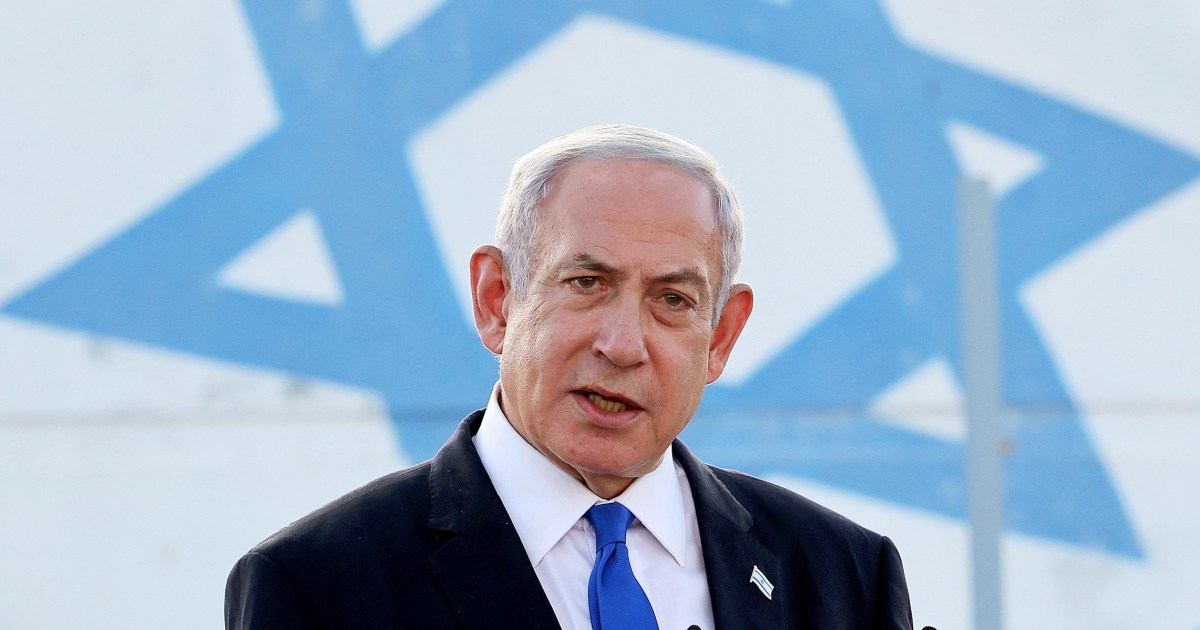
WASHINGTON — Senate Democrats aggressively pushed back Thursday after Israeli Prime Minister Benjamin Netanyahu said he has informed the U.S. that he opposes the creation of a Palestinian state at the conclusion of the war in Gaza.
A key lawmaker, Sen. Chris Murphy, D-Conn., warned that Netanyahu’s remarks could complicate delicate bipartisan negotiations in the Senate on a supplemental package that calls for military aid for Israel coupled with immigration measures and aid for Ukraine.
“I think when Netanyahu says things like that, it does not help win votes from people who are skeptical about the future of a Palestinian state,” Murphy, the Democrats’ top negotiator on the package, told reporters. “That statement is not helpful and, yes, we’re going to need to get … a lot of Democratic votes to pass this.”
Progressives in the Senate, who’ve already been critical of Israel’s military assault in Gaza that has killed thousands of civilians, openly questioned whether the U.S. should continue to send aid to Israel. The close U.S. ally launched its military campaign after Hamas carried out a brazen terrorist attack in Israel on Oct. 7 that killed more than 1,000 people.
“It is the official policy of the United States government that we support two nations for two people to live in dignity and with self-determination,” said Sen. Elizabeth Warren, D-Mass., who serves on the Armed Services Committee. “If Prime Minister Netanyahu opposes that, then we need to question why we are supporting the Netanyahu government.”
Another liberal, Sen. Peter Welch, D-Vt., also had a sharp response for Netanyahu: “What we’re seeing with Netanyahu is that he is willing to take our money but will always reject our advice.”
“He does not share our concern about the loss of Palestinian life. In Gaza, it’s full speed ahead. … Netanyahu is going his own way,” Welch said, adding that Netanyahu’s remarks could “create more tension” when it comes to the U.S. wanting new conditions when supplying additional aid to Israel.
Sen. Tammy Duckworth, D-Ill., a decorated Iraq war veteran who serves on the Armed Services Committee, said she was “appalled” by Netanyahu’s comments.
“I think the way forward to peace in the region is a two-state solution,” Duckworth told NBC News. “And a Palestinian state is also important for the peace of Israel as well. I don’t think he’s in step with the majority of his own population.”
Netanyahu’s “wrong. He’s making it extremely difficult for Israel’s future, for the prospects of peace,” added Sen. Brian Schatz, D-Hawaii. “He is, at every opportunity, making things worse.”
Schatz said he will be introducing an amendment to the supplemental supporting a two-state solution.
Netanyahu’s latest remarks came in response to an NBC News reporting Thursday that U.S. lawmakers and diplomats are working to revive a potential treaty between Saudi Arabia, Israel and the U.S. to end the war, stabilize the region and pave the way for some form of Palestinian self-governance in the Gaza Strip.
Netanyahu rejected the idea of Palestinian sovereignty, saying it conflicts with the need for Israeli security.
“With or without the settlement, the state of Israel must have security control over the entire territory,” Netanyahu said. “This conflicts with the idea of sovereignty. I also say this to the U.S. A prime minister in Israel should be able to say ‘no’ even to our best friends — that’s how I drive.”
Republicans largely stood by Netanyahu, arguing that a two-state solution should be left to the Israeli government to decide — not the U.S.
“I have long said, on the question of a one-state or two-state solution in the Middle East, that America should not try to dictate that outcome — that nobody cares for the safety and security of Israel more than the people of Israel,” said Sen. Ted Cruz, R-Texas, a member of the Foreign Relations Committee.
“If the people of Israel decide to negotiate a two-state solution, that is within their sovereign prerogative to do so,” he continued. “But if they decide that the threat of the sorts of attacks we saw on Oct. 7 are too great for that sort of solution, that also should be within their prerogative.”
Florida Sen. Marco Rubio, the top Republican on the Intelligence Committee, also poured cold water on the concept of a Palestinian state.
“I don’t think a Palestinian state is possible right now. I’ve always believed that. Who would govern it?” Rubio asked. “What we know is that both of the groups who claim leadership of the Palestinian people, both believe in the destruction of the Jewish state. And so it’s tough to negotiate and turn over governance when every time you’ve done so, they’ve turned those territories and operating bases to attack your country.”
“I hope one day will come where that’s possible,” he added. “I don’t know right now how it’s possible. It’s just a realistic assessment.”
On Thursday afternoon, Secretary of State Antony Blinken arrived on Capitol Hill to brief members of the Senate Foreign Relations Committee about his trip last week to the Middle East. Blinken had urged Israel and Arab leaders to agree on a path forward for Gaza after the war with Hamas comes to an end, though Netanyahu rejected the U.S. proposal.
Source: | This article originally belongs to Nbcnews.com










